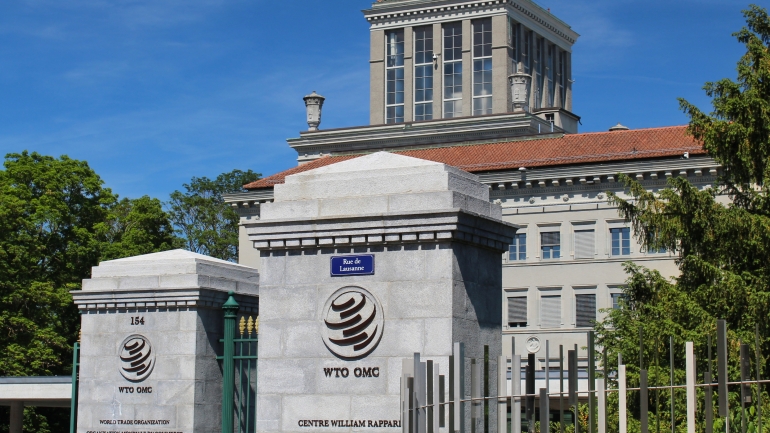Fri 19 July 2019
By Jayne He
The WTO is facing the most significant crisis since its establishment 24 years ago after the U.S. blocks the appointment of Appellate Body (AB) Members for almost two years, which may cause the system paralysed.
Herbert Smith Freehills China International Business and Economic Law (CIBEL) Centre member, Senior Lecturer of UNSW Law, Dr Weihuan Zhou recently co-authored a paper with CIBEL Seed Grant recipient Associate Professor Henry Gao of Singapore Management University to test the main allegation of “judicial overreach” that the U.S. made against the AB with a fresh approach. They found the U.S. accusation is untenable.
This article, titled “‘Overreaching’ or ‘Overreacting’? Reflections on the Judicial Function and Approaches of WTO Appellate Body”, will be published in the upcoming issue 6 of Journal of World Trade.
Despite U.S. unfounded allegation, Dr Zhou and Associate Professor Gao argued that this allegation has reflected major systemic issues in the system, that is, the failure by the WTO legislature to update trade rules and the failure of the political bodies to exercise meaningful oversight over judicial decisions.
Thus, the underlying problem is not with the “over-reach” of the judiciary but is more about the “under-reach” of the legislature in either filling gaps or clarifying ambiguities in WTO rules or finding ways to overturn AB rulings they regard as problematic. They outlined a few proposals which are not only principled as they address the root of the problem, but also practical because they are much easier to implement than the existing mechanisms.
“At the end of the day, the success or failure of the WTO, as a Member-driven organization, ultimately depends on its Members,” the team reiterated.
